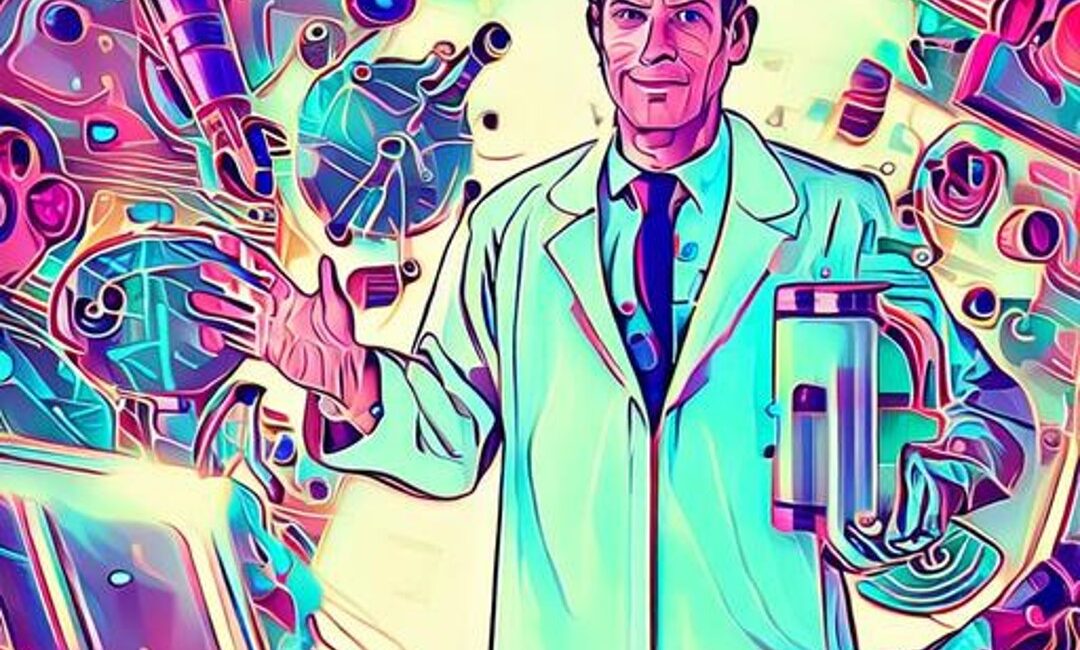Advancements in technology and medical research have revolutionized the field of healthcare, offering new possibilities for disease prevention, diagnosis, and treatment. From groundbreaking discoveries in genetics to the development of cutting-edge medical technologies, this article explores the incredible innovations transforming the healthcare landscape. By delving into these breakthroughs, we gain a deeper understanding of the potential for innovation to improve patient outcomes and shape the future of healthcare.
- Precision Medicine: Personalizing Healthcare Precision medicine is revolutionizing healthcare by tailoring treatments to individuals based on their genetic makeup, lifestyle, and environmental factors. Advancements in genomics, bioinformatics, and data analysis allow healthcare providers to deliver personalized interventions, leading to more accurate diagnoses, targeted therapies, and improved patient outcomes. Precision medicine is paving the way for a new era of healthcare where treatments are tailored to the unique needs of each patient.
- Artificial Intelligence in Healthcare: Augmenting Medical Decision-making Artificial intelligence (AI) is transforming healthcare by augmenting medical decision-making, enhancing diagnostic accuracy, and streamlining patient care. Machine learning algorithms can analyze vast amounts of patient data, detect patterns, and provide valuable insights for clinicians. AI-powered technologies, such as natural language processing and image recognition, enable faster and more accurate diagnoses, personalized treatment recommendations, and the identification of potential risks or complications.
- Telemedicine and Remote Monitoring: Expanding Access to Care Telemedicine and remote monitoring technologies are bridging the gap between patients and healthcare providers, particularly in underserved areas or for individuals with limited mobility. Through video consultations, remote patient monitoring devices, and wearable technologies, healthcare professionals can remotely assess, monitor, and treat patients. These innovations improve access to care, enhance patient convenience, and reduce the burden on healthcare facilities.
- Regenerative Medicine: Repairing and Replacing Tissues and Organs Regenerative medicine holds the promise of restoring damaged tissues and organs through the use of stem cells, tissue engineering, and gene therapy. Researchers are making significant strides in growing functional organs, repairing spinal cord injuries, and regenerating damaged tissues. These advancements have the potential to revolutionize treatments for conditions that were once considered incurable, offering hope to patients and transforming the field of transplantation.
- Robotics and Minimally Invasive Surgery: Enhancing Precision and Recovery Robot-assisted surgery and minimally invasive techniques are revolutionizing surgical procedures, offering enhanced precision, smaller incisions, reduced scarring, and faster recovery times. Surgeons can perform complex procedures with greater dexterity and control using robotic systems. Additionally, advancements in imaging technologies enable real-time guidance during surgeries, further enhancing patient safety and surgical outcomes.
- Digital Health and Wearable Devices: Empowering Patients and Preventive Care Digital health technologies and wearable devices empower individuals to monitor and manage their health proactively. From fitness trackers to smartwatches and mobile health apps, these innovations enable users to track their activity levels, heart rate, sleep patterns, and other vital signs. The data collected can help individuals make informed decisions about their well-being, promote preventive care, and facilitate early detection of health issues.
- Big Data and Analytics: Driving Insights and Research The accumulation of vast amounts of healthcare data, coupled with advanced analytics, has the potential to revolutionize medical research and public health. By analyzing big data sets, researchers can identify trends, predict disease outbreaks, and gain insights into population health. Real-world evidence collected from electronic health records and other sources can inform clinical trials, guide treatment decisions, and drive evidence-based healthcare practices.
Innovation in healthcare, fueled by cutting-edge technologies and breakthroughs in medical research, is transforming the landscape of patient care. Precision medicine, artificial intelligence, telemedicine, regenerative medicine, robotics, digital health, and big data analytics are revolutionizing diagnostics, treatments, and preventive care. These innovations have the potential to enhance patient outcomes, improve access to care, and shape the future of healthcare delivery. As the healthcare industry continues to embrace these advancements, we can expect further breakthroughs that will redefine the way we approach health and well-being. By harnessing the power of innovation, we can strive towards a healthier, more efficient, and patient-centered healthcare system.

